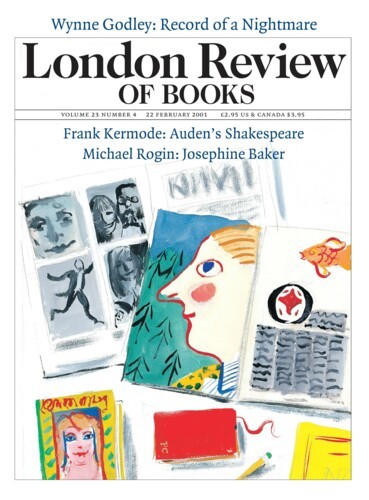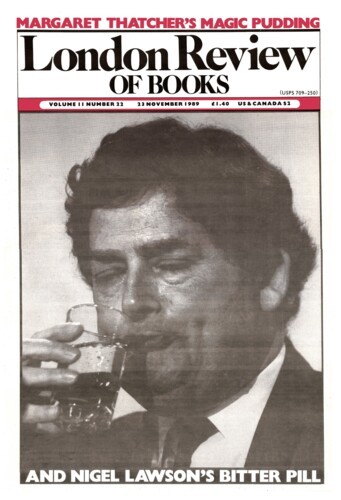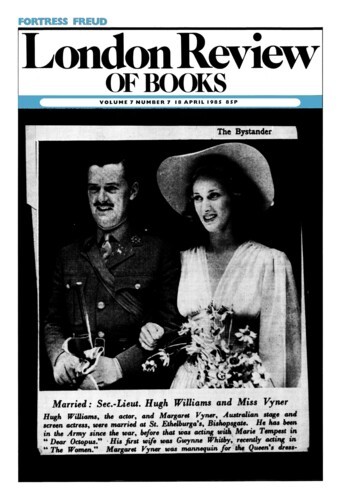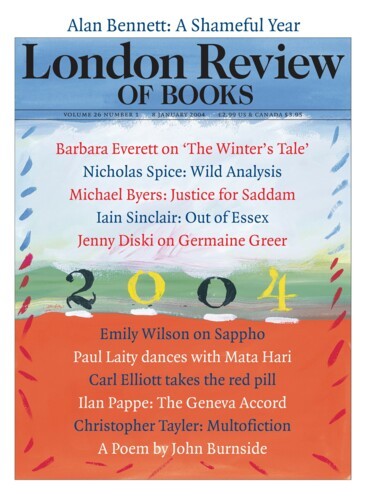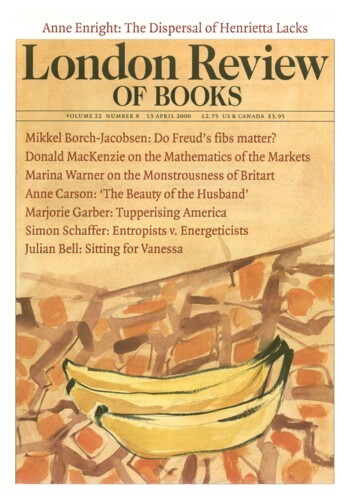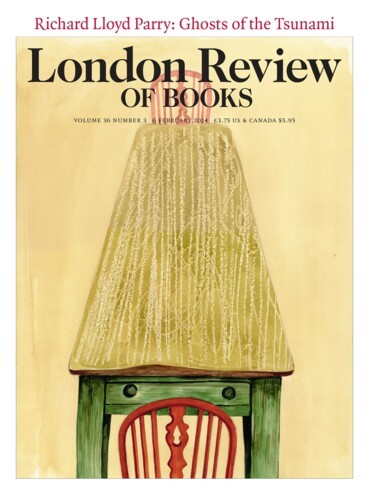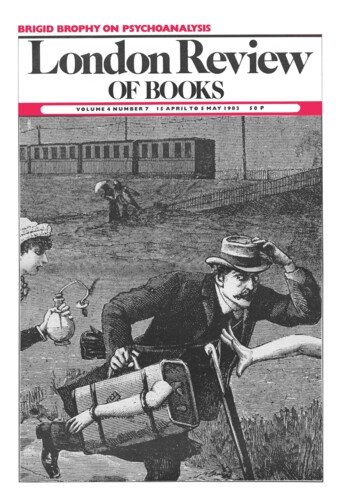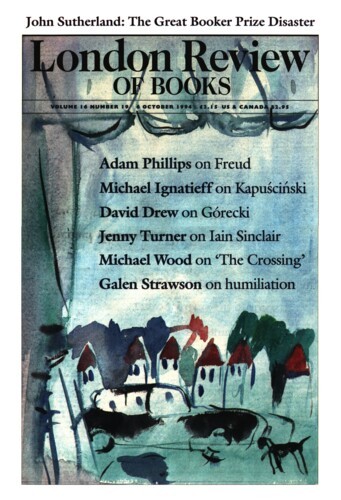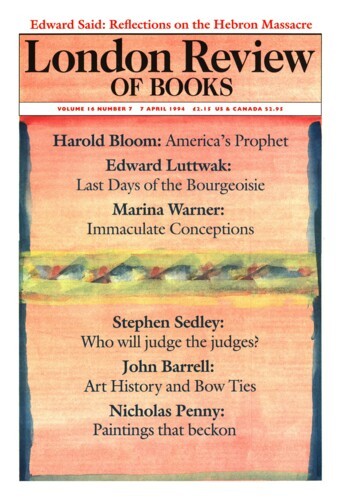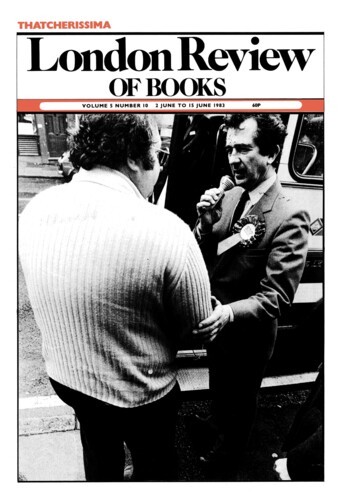Saving Masud Khan
Wynne Godley, 22 February 2001
Khan always answered telephone calls during sessions. When Winnicott rang up I could clearly hear both sides of the conversation, so presumably he angled the phone towards me. Winnicott spoke respectfully to Khan, for instance about a paper which he had recently published. ‘I learned a great deal from it,’ Winnicott said deferentially. This particular conversation ended with a giggly joke about homosexual fellatio – the final two words of the conversation – accompanied by loud laughter.
